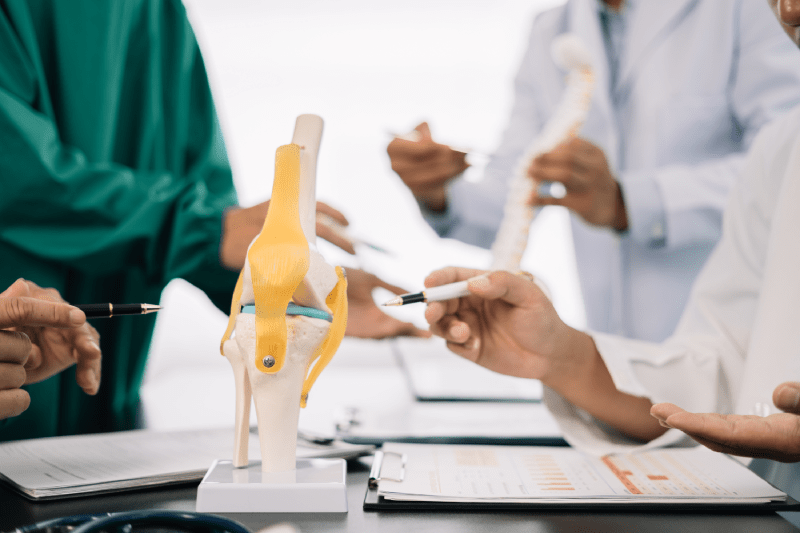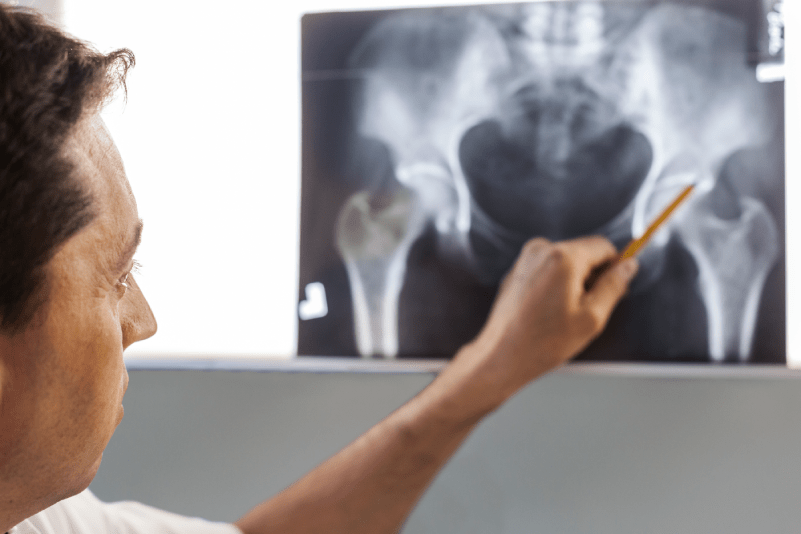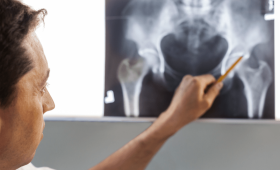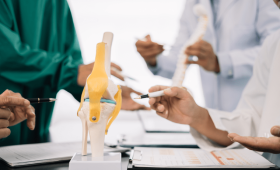What is the average cost of hip replacement surgery in Turkey?
The cost of hip replacement surgery in Turkey varies depending on the scope of the operation, the location of the hospital, the surgeon’s experience, and the type of prosthesis used. On average, prices can range from $7,000 to $15,000. This price range is quite economical compared to many Western countries (e.g., $20,000-$50,000 in the USA, £10,000-£20,000 in the UK). These affordable prices make Turkey an attractive medical tourism destination, especially for foreign patients. Prices are often offered as all-inclusive packages that cover all stages of the surgery.
Why are surgery prices in Turkey more affordable?
The main reasons why surgery prices in Turkey are more affordable include lower general living and labor costs compared to Europe and North America. In addition, the value of the Turkish Lira against foreign currencies makes costs more attractive for foreign patients. The government’s incentives for medical tourism and competitive market conditions also play a significant role in keeping prices low. This situation makes it possible to receive high-standard services without compromising on quality.
What services are included in the price?
Prices for hip replacement surgery in Turkey are generally offered as all-inclusive packages. These packages cover the surgeon’s fee, the anesthesiologist’s fee, hospital stay, the cost of the prosthesis used during the surgery, the first few post-operative physiotherapy sessions, and necessary medications. Some comprehensive packages may also include airport transfer, accommodation, and interpreter services. This allows patients to plan their treatment process more easily and not worry about additional costs.
What is the quality of hospitals in Turkey?
Turkey is a prominent country in medical tourism, and many of its hospitals provide services at international standards. A large number of hospitals have prestigious international accreditations such as the Joint Commission International (JCI). These hospitals have state-of-the-art medical equipment, modern operating rooms, and luxurious patient rooms that prioritize comfort. The quality of hospitals is on par with private hospitals in Western countries and offers a service that exceeds the expectations of most foreign patients.
What is the experience and expertise of Turkish surgeons like?
Turkish surgeons are highly experienced and specialized in hip replacement surgeries. As Turkey is a popular destination for medical tourism, these surgeons regularly serve international patients and have extensive case experience. Many Turkish surgeons have been educated abroad, participate in international congresses and seminars, and closely follow the latest techniques in the field. This ensures that patients can undergo surgery with confidence.
How long does hip replacement surgery take?
The duration of hip replacement surgery varies depending on the patient’s condition and the technique preferred by the surgeon. On average, a single hip replacement surgery takes between 1 to 2 hours. In some cases, more complex cases or revision surgeries may take longer. An experienced surgeon keeps the surgery time as short as possible to reduce the patient’s time under anesthesia and the risk of complications.
How long is the hospital stay after the surgery?
The hospital stay after hip replacement surgery varies according to the patient’s general health and recovery speed. Patients usually stay in the hospital for 3 to 5 days. During this time, nurses and physiotherapists support the patient’s early mobilization and help them take their first steps. This short hospital stay provides enough time for patients to comfortably begin their recovery.
What is the post-operative recovery process like?
The post-operative recovery process is felt significantly in the first few weeks, but full recovery can take between 6 months and 1 year. For the first 2-3 weeks, using a walker or crutches may be necessary. Physiotherapy is of critical importance to strengthen the muscles and regain joint mobility. Patients can return to their normal activities a few months after the surgery, but heavy sports should be avoided. Following the doctor’s instructions is vital during this process.
What is the level of pain after hip replacement surgery?
The level of pain after hip replacement surgery can be controlled very well thanks to modern surgical techniques and pain management methods. The pain felt immediately after the surgery can be easily managed with painkillers prescribed by the doctor. There may be a slight discomfort and pain in the first few weeks, but this condition decreases over time. Most patients state that their chronic pain before the surgery is completely gone after the surgery.
What types of hip prostheses are used?
Today, prostheses made of different materials are used in hip replacement surgeries. The most commonly used are metal-polyethylene, ceramic-polyethylene, and ceramic-ceramic combinations. The choice of prosthesis is determined by the surgeon based on the patient’s age, activity level, and bone structure. Ceramic-ceramic prostheses are more frequently preferred in young and active patients because they have a longer lifespan, while metal-polyethylene prostheses are more traditional.
Who is the most suitable candidate for the surgery?
The most suitable candidate for hip replacement surgery is an individual who is in good general health and whose daily life is severely affected by joint pain and loss of function. It is generally a surgery recommended for patients aged 50 and over, but it can also be performed on younger patients in cases of trauma or other medical conditions. It is important that candidates have the physical and psychological ability to adapt to the post-operative physiotherapy process.
How does the process work for patients coming from abroad?
For patients coming from abroad, the process usually starts with an online consultation. The patient sends their medical history and imaging results to the surgeon. After the evaluation, a travel and accommodation plan is made with the hospital. Upon arrival in Turkey, airport transfer is arranged, the patient is admitted to the hospital, and the surgery is performed. After being discharged, the patient usually continues to stay for a few more days to rest and have final check-ups.
Are accommodation and transportation provided for those coming from abroad?
Many Turkish hospitals and clinics experienced in medical tourism offer accommodation and transportation services for foreign patients. Generally, airport transfers and stays in contracted hotels near the hospital are included in the surgery packages. This makes the patients’ travels less stressful and allows them to focus on their treatment process.
Does the language barrier pose a problem?
Hospitals specializing in medical tourism in Turkey usually employ staff who speak English and other common languages, or professional interpreters, to serve international patients. Patients can benefit from these services throughout the pre-operative and post-operative processes. This ensures that patient-doctor communication is uninterrupted and secure.
How is the post-operative physiotherapy service provided?
Post-operative physiotherapy is the most important part of the recovery process. While in the hospital, you take your first steps with a physiotherapist and learn basic exercises. After being discharged, your surgeon or the hospital will prepare a rehabilitation plan that you can continue in your home country and recommend that you work with a local physiotherapist.
What is the lifespan of a hip prosthesis?
The lifespan of modern hip prostheses varies depending on the material used, the patient’s age, activity level, and general health condition. Generally, the lifespan of a hip prosthesis ranges from 15 to 25 years. However, prostheses made of more modern materials may have an even longer lifespan. To extend the life of the prosthesis, it is important to go for regular doctor check-ups and avoid heavy sports.
When is revision surgery necessary?
Revision surgery is necessary in cases where the existing prosthesis has reached the end of its life, has loosened, become infected, or dislocated. Revision surgery can be more complex and take longer than the first surgery. Therefore, the successful completion of the initial hip replacement operation is of great importance.
What are the potential risks and complications of the surgery?
As with any surgical operation, hip replacement surgery has some risks and complications. These may include infection, blood clotting, prosthesis dislocation, nerve damage, and leg length discrepancy. However, these risks are minimized with an experienced surgeon and a modern hospital. You will be informed about all risks during a detailed pre-operative consultation.
Will there be a scar after the surgery?
Yes, there will be a scar on the area where the surgery was performed after a hip replacement surgery. However, surgeons usually use minimally invasive (small incision) techniques and aesthetic sutures to minimize the scar. These scars fade over time and become less visible, but they do not disappear completely. Caring for the scar and protecting it from the sun helps improve its appearance.
How is the pre-operative consultation done?
For patients considering surgery in Turkey, pre-operative consultations are usually held on online platforms. Patients send their medical documents (X-rays, MRIs, blood tests) to the surgeon and get information about the details of the surgery, potential risks, and expectations through a video call. These meetings are of vital importance to increase the patient’s trust in the surgeon and facilitate the decision-making process.

How should flight and travel arrangements be made for patients coming from abroad?
The travel plan should be made after all the patient’s medical documents have been reviewed before the surgery. It is generally recommended to arrive 1-2 days before the surgery to have time for final check-ups and to rest. Staying for a few weeks after the surgery is important for the surgeon to follow you and for you to start your physiotherapy process. You may need to get approval from your doctor for air travel and wear special stockings to prevent blood clots.
Is a visa required for the surgery?
Yes, a visa may be required depending on the country you are traveling to for the surgery. Some countries, such as Turkey, do not require a visa from citizens of many countries or allow online visa (e-visa) applications. However, a Schengen visa may be required for European Union countries or a visa for the USA. You should remember that the visa application process can take time and plan your travel accordingly.
Is it necessary to lose weight before the surgery?
Yes, reaching your ideal weight or losing excess weight before the surgery is very important for the success of the surgery and the recovery process. Excess weight can increase the risk of anesthesia during the surgery and lead to post-operative complications (infection, blood clotting, etc.). In addition, since there will be less load on the new prosthesis after the surgery, it extends the life of the prosthesis and speeds up the recovery process.
When can I return to which activities after the surgery?
It is important to start exercising gradually and with your doctor’s approval after the surgery. Light activities such as walking can be done for the first 2-3 weeks. It may take a few months to fully return to your physical activities. Avoiding high-impact sports such as heavy lifting, running, or jumping, and slowly returning to your normal activities is critical for a successful recovery process.
What tests are done for the surgery?
Before hip replacement surgery, a series of tests are performed to evaluate your general health. These tests usually include standard blood tests, urine tests, an EKG to show heart function, and a chest X-ray. These tests are of critical importance to determine if there are any risks during the surgery and anesthesia.
Is it necessary to pay attention to nutrition after the surgery?
Yes, nutrition after the surgery is very important to support the recovery process. It is important to consume foods rich in protein, calcium, and vitamin D for the healing of bones and tissues. Drinking plenty of fluids is necessary to maintain hydration and prevent constipation. Weight control after the surgery is also important to prevent excessive load on the prosthesis.
What symptoms are not normal after the surgery?
While some symptoms are considered normal after the surgery, some may be a sign of a serious condition that requires immediate medical attention. You should consult your doctor immediately if you experience any of the following symptoms: excessive pain, redness, swelling, or discharge in the operated area; high fever; shortness of breath; chest pain; or a noticeable swelling in the leg. These symptoms can be a harbinger of complications such as infection or blood clotting.
What medications should be stopped before the surgery?
Before the surgery, it may be necessary to stop taking medications such as blood thinners (aspirin, ibuprofen, etc.), some vitamin supplements, and herbal medicines. These medications can increase the risk of bleeding during the surgery. It is of vital importance to inform your doctor about all the medications and supplements you are using during the pre-operative consultation. Your doctor will give you clear instructions on which medications to stop and when.
What are the legal rights and patient protection mechanisms for foreign patients?
The rights of foreign patients who have surgery in Turkey are protected by the laws of the Republic of Turkey and the international accreditations of the hospital. Hospitals with international accreditations (such as JCI) are committed to complying with high patient safety and ethical standards. In addition, hospitals ensure that international patients are supported throughout the entire process through patient rights units.
How are hospitals and surgeons in Turkey supervised?
Hospitals and surgeons in Turkey are under strict supervision by the Ministry of Health. In addition, surgeons are members of professional chambers such as the Turkish Orthopedic and Traumatology Association and are obliged to follow ethical rules. Hospitals with international accreditations are also regularly supervised by these organizations. These supervisions aim to keep the quality of healthcare services and patient safety at the highest level.
When can I start driving after the surgery?
It is generally recommended to wait 4 to 6 weeks before starting to drive after the surgery. This is to ensure that you have fully regained the strength and control of the operated leg. It is important that you have the full ability to make a sudden stop or turn the steering wheel in an emergency. It is best to talk to your doctor and get their approval on this matter.
Is single or double hip replacement more common?
Generally, hip replacement surgery is performed on a single hip. However, if there is severe degeneration and pain in both hips, the surgeon may recommend operating on both hips in a single surgical session depending on the situation. Double hip surgery may require a longer operation process and recovery period, but it allows the patient to complete the entire treatment process at once.
Is hotel accommodation necessary after the surgery?
Yes, staying in Turkey for a few more days after being discharged from the hospital is necessary to spend the first stages of the recovery process more comfortably and to have final check-ups. Hospitals usually offer accommodation options in contracted hotels near the hospital. This facilitates post-operative patient follow-up.
What kind of support is available for long-term recovery?
For the long-term recovery process, it is essential to regularly continue the physiotherapy program recommended by your doctor. In addition, you can stay in touch with the hospital or clinic through video conferences and consult your surgeon directly. Support services such as nutrition counseling, wound care, and pain management are also important to speed up your recovery process.
How long does it take for the results of the surgery to become apparent?
The results of hip replacement surgery begin to be felt immediately after the surgery. A large part of the pain felt before the surgery disappears after the operation. While it may take a few months to fully regain mobility and strength, it takes between 6 months and 1 year for the prosthesis to fully settle and the functional recovery to be finalized. It is important to be patient during this process.


